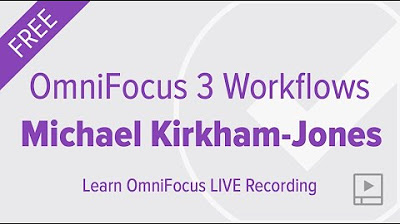What's Next in AI: a conversation on AI and the workplace
Summary
TLDR录像脚本涉及了IBM如何在人力资源管理中使用AI和自动化。讨论了实验、员工适应性、以及AI伦理原则等相关话题。使用AI带来的好处包括:更快的响应时间、让人类专注于更复杂的工作。
Takeaways
- 😀 人工智能正在重塑企业的人才管理
- 😊 人工智能有助于提高员工满意度
- 😎 实验和迭代非常重要
- 🤓 必须实施人工智能伦理原则
- 🧐 数据和模型健壮性至关重要
- 🤔 人工智能并不总是一个完美的解决方案
- 😌 人工智能释放了人力资源专注更高价值的工作
- 🙂 必须在人工智能中保持透明度
- 🤩 人工智能正在创造新的工作机会
- 😄 不要害怕人工智能,立即开始吧!
Q & A
IBM在人工智能领域有哪些核心原则?
-IBM有几个核心原则:1)人工智能是用于增强人类智能的;2)在内部流程中,人工智能永远不是决策者;3)数据和见解属于创建者。
人工智能如何改变IBM的内部运营?
-人工智能改变IBM内部运营的三个方面:1)确保每一美元的投资都取得最大回报;2)运营环境变得更加复杂;3)员工期待个性化的消费级体验。
AskHR这一人工智能助手每年处理多少次对话?
-AskHR每年处理150万次对话。
人工智能助手改善了IBM的净推荐值吗?
-是的,数字化层面的净推荐值提高到+35,在某些流程中甚至达到+70,这意味着员工获得了更好的用户体验。
人工智能如何提升HR从业人员的职业发展?
-通过处理更多高价值工作,HR从业人员的平均级别提高了一个完整的级别或档次,为他们带来了更好的职业发展。
人工智能自动化如何提高IBM的升职流程效率?
-在一个典型需时一个季度的升职流程中,Watson Orchestrate的自动化工具节省了12,000个工作小时。
人力资源主管应该如何调整方法来应对人工智能创新?
-他们可以从两方面入手:1)引入数字助手改善基本查询和交易;2)应用自动化改进人才生命周期中的流程。
实施人工智能需要注意什么原则?
-需要注意的几个关键原则:可解释性、透明度、公平性、健壮性。这可以建立用户信任,确保合规。
视频中IBM HR负责人建议企业家从哪几个方面着手使用人工智能?
-她建议从这几个方面着手:1)准备实验;2)在试验中平衡风险;3)从小规模开始;4)在实施过程中争取倡导者并从用户那里获得反馈。
人工智能真的会带来失业风险吗?
-不会。IBM认为人工智能实际上会成为净创造就业机会的技术。因为它会把人力资源从单调和行政工作中解放出来,转为从事更加创新和创造性的工作。
Outlines

此内容仅限付费用户访问。 请升级后访问。
立即升级Mindmap

此内容仅限付费用户访问。 请升级后访问。
立即升级Keywords

此内容仅限付费用户访问。 请升级后访问。
立即升级Highlights

此内容仅限付费用户访问。 请升级后访问。
立即升级Transcripts

此内容仅限付费用户访问。 请升级后访问。
立即升级浏览更多相关视频

OmniFocus Workflows with Michael Kirkham Jones

Dart AI: FREE Agentic AI Project Manager! 🤯

AI-Driven Supply Chains: 3 Cases | MIT SCALE Webinar | English

Performance Measurement – Constructed Response Set –Quantum Asset Management – (Level III CFA®)

My Second Brain Setup in Notion

AI时代,个人精进方法论,我笨我先飞

The Critical Role of Supply Chains in Business and Society
5.0 / 5 (0 votes)